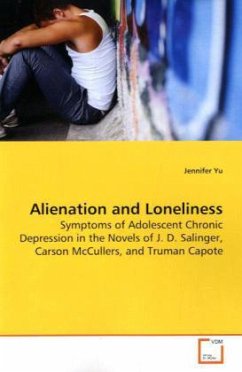Adolescence is a transitional period as a child
grows into an adult. In literature, this
transitional stage is accompanied by a reflection of
life and an exploration of the meaning of human
existence. Three American novels written during the
1940s--J. D. Salinger's The Catcher in the Rye,
Carson McCullers's The Heart Is a Lonely Hunter, and
Truman Capote's Other Voices, Other Rooms--examine
the conflicts of adolscents as they attempt to
relate to peers, family, schools, and society. All
of the three novels are relective of problems and
issues confronting adolescents influenced under a
variety of backgrounds. The more salient themes,
however, are specific to the adolescent's mental and
psychological problems. And such themes are revealed
from the teenagers' relationships with others.
grows into an adult. In literature, this
transitional stage is accompanied by a reflection of
life and an exploration of the meaning of human
existence. Three American novels written during the
1940s--J. D. Salinger's The Catcher in the Rye,
Carson McCullers's The Heart Is a Lonely Hunter, and
Truman Capote's Other Voices, Other Rooms--examine
the conflicts of adolscents as they attempt to
relate to peers, family, schools, and society. All
of the three novels are relective of problems and
issues confronting adolescents influenced under a
variety of backgrounds. The more salient themes,
however, are specific to the adolescent's mental and
psychological problems. And such themes are revealed
from the teenagers' relationships with others.








